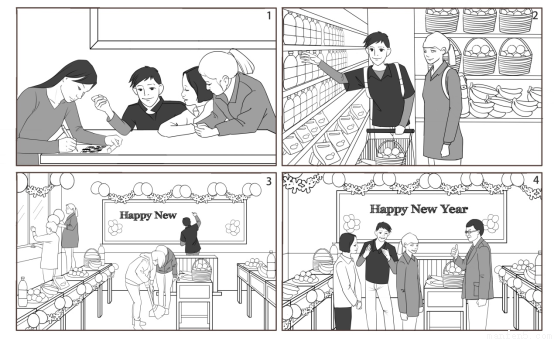题目内容
假设你是红星中学高三学生李华。上周,你班同学为迎接新年的到来,为元旦联欢会精心策划准备。请你按照以下四幅图的先后顺序,以“Preparations for New Year’s Party”为题,给校刊写一篇英文稿件,介绍准备联欢会的全过程。
注意:词数不少于60。

(请务必将情景作文写在答题卡指定区域内)
练习册系列答案
相关题目
题目内容
假设你是红星中学高三学生李华。上周,你班同学为迎接新年的到来,为元旦联欢会精心策划准备。请你按照以下四幅图的先后顺序,以“Preparations for New Year’s Party”为题,给校刊写一篇英文稿件,介绍准备联欢会的全过程。
注意:词数不少于60。

(请务必将情景作文写在答题卡指定区域内)